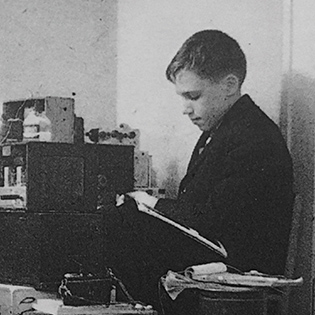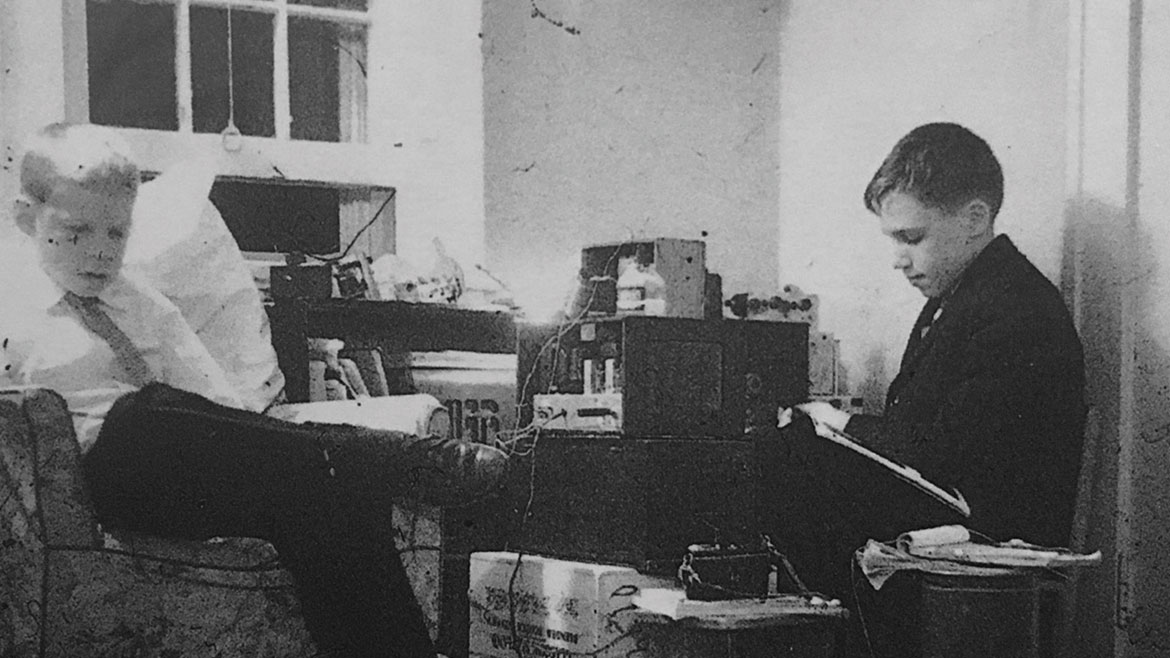It’s Only an Election


It began on the playground behind Cleveland School. The fracas was sparked by the second grader who came to class wearing a “Stevenson for President” button that, with some optical trickery, flashed an image of the Illinois governor depending on how you looked at it. Sides were taken; an argument broke out, but none of us really knew why we were yelling at each other. For some cosmic reason, among this multitude of seven-year-olds, we had our differences. Then a teacher heard the ruckus and things cooled down. But on that crisp, fall afternoon 64 years ago came the revelation that there were differences between us. It was really a reflection of whether our parents wanted Adlai Stevenson or Dwight D. Eisenhower to be the next president of the United States.
I well remember the ritual of breakfast, where my parents pored over the latest city edition of the New York Herald Tribune, and how they engaged their two sons every morning with discussions about the news of the day. This went beyond the Thornton W. Burgess nature stories Papa read to us before bedtime when we were toddlers, or cartoonist H. T. Webster’s latest depiction of Caspar Milquetoast. The nominally Republican Trib — it folded, regretfully, for a variety of reasons on April 24, 1966 — is still fondly recalled and honored for its typographic excellence; the fair, unbiased neutrality of its journalists at what was called a “writer’s newspaper;” the balance and range of its features; a superb sports section; and the paper’s stable of literate opinion columnists — some of them syndicated — that included the temperate but somewhat left-leaning Walter Lippman. I was blessed, by the accident of birth, growing up adjacent to the nation’s largest city with its plethora of media choices.
My industrialist father was more conservative than my mother, but both of them voted for Eisenhower that November because the retired general and former president of Columbia University promised to go to Korea — which he did the following year — to arrange some sort of settlement of the stalemated conflict in the Far East.
An early excursion into the realm of politics was the night President Truman’s State of the Union address pre-empted “The Lone Ranger” on WJZ. I had no idea what the man from Independence, Missouri was talking about, but hearing the president speak on the radio was enthralling. I became a media junkie — an inveterate reader of books, magazines, and newspapers, with a consuming obsession for radio blessed by a dial-full of choices to wile away the hours that kept me off the streets and out of trouble.
Launched onto the roiling waters of the 16th presidential election cycle since those primordial days as a young sprout, there comes the need in some cases to recalibrate relations with others in what has evolved into this year’s highly charged, sharply divided political landscape. This especially relates to friends one wishes to remain friends with, but who we’ve fallen out of step with — perhaps only until the results are in. This means proscribing talk about politics, candidates, races, and issues for the time being.
Then there’s the dilemma of getting the news — where does one go these days for neutrality and balance in adherence with the ancient, and apparently unfashionable, tenets of journalism as it was practiced when I began reading the Herald Tribune? Somewhat well-read as a student of presidential elections over the years, I see that the unfolding imbroglio between the two candidates this year has been painfully exacerbated by the excesses of strongly biased, non-objective media coverage, while on a parallel track, vast sums are committed in blitzkrieg marketing efforts to win electoral jousts down to the comparative insignificance of various local races.
In 1952, Messrs. Stevenson and Eisenhower were candidates with strikingly impeccable credentials devoid of any apparent scandals or wrongdoing. They mostly toured the country by rail, whistle-stopping across the land at a time when television was still seeking its ultimate ubiquity and the Fourth Estate was dominated by excruciatingly fair and balanced newspapers, aside from their clearly defined and labeled editorial pages. Of course, those of us with more than a few elections under our belts have to accept the changes wrought by the internet and its electronic subsets that include Facebook and Twitter.
By our seniority and entrenched wisdom, we lament the decline of the traditional media, as these outlets have become engulfed by the partisanship that has wrecked once-honored heralds of print, radio, and television. There is much more to life as fall approaches. For our own health and sanity, we should corral our media obsessions during this election cycle as an antidote for longevity. We may not like how various election races turn out, but there’s a great deal more to life than fretting over what happens come November.


